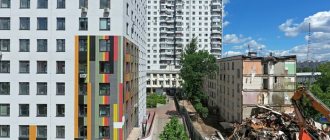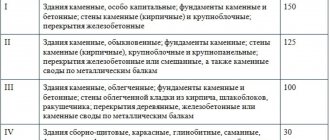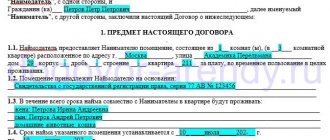Author Peter Deryabin
12/14/2018 16:48 (Updated: 09/29/2021 00:11)
Real estate
Today, in the housing stock of our state there are still quite a lot of communal apartments in which a large number of people live.
Our country has a specially developed social program aimed at relocating those living in communal apartments. For the most part, it is distributed in cities at the federal level - St. Petersburg, Moscow.
A government program aimed at relocating communal apartments started in 2007 and is still running.
This article will help you learn about important points regarding resettlement - who is involved in the process, what difficulties you may encounter, and what documents are needed.
Priority rules
- The first apartments to fall under the program are those that have the consent of all residents;
- Then, the program includes a category of citizens who have the status of large families, whose neighbors do not agree to leave communal housing;
- And the last ones are citizens who do not belong to the preferential category, who have expressed a desire to leave the communal apartment.
Ultimately, all owners or renters of such housing who participate in the program will receive cash payments.
Renovation of communal apartments; How will communal apartments be resettled in Moscow?
The renovation program in Moscow provides for the massive relocation of citizens from old dilapidated Khrushchev-era buildings to new comfortable buildings. The project also includes residents of “communal apartments”, which were actively formed in the 50-70s of the last century. An apartment is considered communal if each owner has his own living space and common areas, and payments are made separately. What does the renovation of communal apartments involve?
Imperfections were soon discovered: particularly enterprising citizens bought rooms in communal housing and registered entire families in them, several generations at once, in order to get really large areas when moving. Muscovites remember that time for the high-profile lawsuits - there was not enough square footage for all the housing, people had to be forcibly evicted from unsafe buildings.
The authorities emphasize that the renovation program is not just building new housing, but creating an urban environment convenient for living. For example, for the renovated Golyanovo microdistricts, in addition to modern houses, the appearance of educational complexes and clinics, as well as sports and health centers, is planned.
Imperfections were soon discovered: particularly enterprising citizens bought rooms in communal housing and registered entire families in them, several generations at once, in order to get really large areas when moving. Muscovites remember that time for the high-profile lawsuits - there was not enough square footage for all the housing, people had to be forcibly evicted from unsafe buildings.
General requirements
- The owner of the property, the tenant of the living space, or a family member of the owner or responsible tenant must have lived in the city for at least 10 years;
- There is no other real estate in private ownership or as social rent;
- There is the status of a WWII veteran;
- The category of citizens that belongs to a large family lives in a building where, according to regulatory requirements, there are discrepancies in the amount of square footage per person;
- The requirements for ensuring safe living and sanitary standards were violated on the premises. Housing is in disrepair.
Resettlement of communal apartments: program conditions, documents
Important! In 2021, citizens who are on the housing register and have lived in a multi-room communal apartment (MCA) for at least 15 years have priority rights to resettlement. MCC is considered to be a residential premises: 5 or more rooms with a bathroom and central hot water supply, 4 or more rooms without a bathroom and hot water, in which 5 and 4 families live, respectively.
- At the request of the applicant, a response based on the results of consideration of the complaint can be submitted no later than the day following the day the decision was made, in the form of an electronic document signed with the electronic signature of the official authorized to consider the complaint and (or) the Housing Committee, the CIS, an MFC employee authorized to consideration of complaints, the type of which is established by the legislation of the Russian Federation.
- If, during or as a result of consideration of a complaint, signs of an administrative offense or crime are identified, an official of the Housing Committee, the CIS, an employee of the MFC, empowered to consider complaints, immediately forward the available materials to the prosecutor's office.
- The Housing Committee, KIS, MFC refuses to satisfy the complaint in the following cases:
- the presence of a court or arbitration court decision that has entered into legal force on a complaint about the same subject and on the same grounds;
- filing a complaint by a person whose powers have not been confirmed in the manner established by the legislation of the Russian Federation;
- the presence of a decision on a complaint made earlier in accordance with the requirements of administrative regulations in relation to the same applicant and on the same subject of the complaint.
- documents proving the identity of the applicant and his family members (passport of a citizen of the Russian Federation or temporary identity card issued for the period of its replacement);
- documents containing information about the composition of the applicants’ family;
- birth certificates of the applicant’s family members under 14 years of age;
- documents confirming the powers of the guardian (trustee), in cases provided for by current legislation;
- documents containing information about the place of residence of the applicant and his family members (registration certificate (form 9) or a court decision establishing the fact of residence in a communal apartment, which has entered into legal force);
- characteristics of the occupied residential premises (form 7);
- documents confirming the grounds for the applicant’s ownership and use of the occupied residential premises;
- documents confirming that the applicant and his family members are on the housing register, containing housing registration data based on the results of their updating by the administrations of the districts of St. Petersburg in accordance with the Decree of the Government of St. Petersburg dated October 17, 2005 No. 1546 “On updating the registration data of citizens as those in need of residential premises, registration of citizens who need assistance from St. Petersburg in improving their housing conditions, and registration of citizens who have the right to conclude rental agreements for residential premises of the social housing stock.”
Applications for choosing a form of assistance in improving housing conditions in the form of social payments under the Program are accepted only by the St. Petersburg State Budgetary Institution “Gorzhilobmen” at the address: st. Bronnitskaya, 32, 1st floor. Reception hours for citizens: Monday - Thursday from 9.00 to 18.00, break from 13.00 to 13.45; Friday from 9.00 to 17.00, break from 13.00 to 14.00. Help numbers: 576-00-00, 576-06-46.
If the complaint is submitted through a representative of the applicant, a document confirming the authority to take actions on behalf of the applicant is also submitted. The following may be submitted as a document confirming the authority to carry out actions on behalf of the applicant:
What kind of housing is provided in return?
The conditions of the program and the housing options that are provided differ depending on the region in which you live.
Types of housing:
- Apartment in a new building. An apartment is offered in a building under construction (not less than 70%);
- Housing of a similar type. It is now extremely rare, since in the populated areas of our state there are almost no communal apartments left that satisfy living conditions;
- Separate housing. Residents of communal apartments who are not relatives must receive an apartment separately for each family;
- Purchase of the remaining rooms in the communal apartment at a reduced price.
Relocation of communal apartments 2021 Moscow
Sergey Stepashin: There is another one - financial. We need to move funds that are planned for 2024 to 2021-2022. As long as we have money. We transferred 50 billion rubles, now we need to transfer 58 billion. And further. We are fighting for the rhythm of funding so that the 10% sequestration that was announced does not affect us. This year, by the way, the budget should be quite good. The cost of a barrel of oil is quite strong - above the cut-off price. So, if the money arrives on time, we will complete the tasks assigned to us.
A room in a communal apartment can also be rented out, especially in Moscow, where many simply cannot afford to rent separate housing . There is no need to obtain consent from neighbors for this. In such a situation, they will only have the right of first refusal, which few people use.
How will communal apartments be resettled during renovation? The law on renovation in the capital has been in effect since 2021. Under this program, citizens of dilapidated and dilapidated housing receive new apartments of the same or larger area. Moreover, the developer rents out such housing renovated so that you can live in it immediately.
Communal apartments were provided to citizens during the Soviet Union. Excess residential premises were confiscated and workers were placed in them. Currently, communal housing is a problematic issue for the capital and St. Petersburg; there is less of it in other cities.
In turn, the representative of the Civil Engineering Department, Nina Manova , said that the developer will be given all the information about the number of rooms in communal apartments, and when designing houses under the Renovation Program, this will be taken into account in accordance with the guarantees of the Program and the corresponding number of apartments will be planned .
- Bogorodskoye: Millionnaya st., vl. 3;
- TPU “Open Highway”.
- 13th Parkovaya St., ow. 16;
- microdistrict 40-52, bldg. 2;
- st. Plekhanov, vl. 18;
- st. 15th Parkovaya, vld. 46A;
- Babushkinsky district: Ostashkovskaya street, vl. 9/2;
- Bibirevo: st. Belozerskaya, ow. 3-5;
- Butyrsky district: st. Milashenkova, ow. 7/3;
- Losinoostrovsky district: Taininskaya st., vld. 9/5;
- Maryina Roshcha: st. Annenskaya, vl. 6;
- Otradnoe: st. Olonetskaya, ow. 21.
- Novogireevo: st. Morning, ow. 3.
- Perovo: 1st Vladimirskaya st., vl. 47;
- st. Metallurgov, 56.
We recommend reading: How an apartment is inherited
The time has come for change: the authorities decided to replace the panel five-story buildings of the 1-515 series, the block ones - 1-510 and the brick ones -1-511, as well as their modifications with modern comfortable houses with parking lots underneath, new utilities, and landscaped courtyards. In addition to Khrushchev buildings, the demolition list included houses of 2-3 floors, as well as about 100 nine-story panel buildings. Plan for the demolition of five-story buildings in Moscow 2021-2025. Affects most of all the Eastern administrative district (Bogorodskoye, Metrogorodok, Sokolinaya Gora, Preobrazhenskoye), Northwestern (Khoroshevo-Mnevniki and Shchukino) and Southwestern (Cheryomushki). In total, there are 560 blocks in Moscow with old five-story buildings.
- Biryulyovo East: st. Zagoryevskaya, vl. 2/1.
- Biryulyovo Western: Bulatnikovsky proezd, 16a;
- Kharkovsky proezd, vl. 1/1.
- Yerevan st., ow. 6;
Lack of consent from neighbors
A large number of residents of communal apartments were able to fulfill their dreams and move into comfortable housing. But there is a percentage of the population that has not become the happy owner of their own home.
The unfair condition of obtaining consent from all residents of a communal apartment deprived people of the opportunity to get an apartment with a hotel kitchen and bathroom.
When the program first came into force, in order to become a participant, one of the mandatory conditions was the consent of all people registered in the communal apartment.
But today the conditions are slightly different. In 2021, changes were made according to which you can leave the communal area forever, regardless of the decision of your neighbors.
Residents of St. Petersburg communal apartments were deprived of their last hopes for free housing
The St. Petersburg parliament in the third reading adopted a law on changing the conditions for the resettlement of communal apartments. Now, in order to register as a person in need of improved housing conditions, the owner of a communal room will have to prove that he is low-income.
“According to the standards, a family of three people in need of improved housing conditions receives a subsidy in the amount of 1.78 million rubles, citizens living alone receive a little more than one million rubles. In order for residents of communal apartments to purchase a separate apartment, they must add their own savings to the allocated subsidy or attract mortgage funds. In our experience, in 90% of cases, own savings and subsidies amount to about 40% of the cost of the purchased housing. The remaining funds are covered by a mortgage loan, which residents of communal apartments often either cannot afford or are refused by banks,” the expert comments.
Possible reasons why the move did not take place
- The apartment is located in the city center. Such real estate is most often concentrated in the central regions of the capital of the Russian Federation and the cultural capital. Because of this, people continue to live in communal apartments, experiencing inconvenience.
- The owner of a communal apartment wants to get more money for the sale of his home. There is some process of owners or tenants who put forward demands that do not correspond to the capabilities and goals of the state program (they want to get several apartments, double the subsidy, etc.).
After that, changes were made to the state program; there is no need to persuade neighbors to agree.
The price per square meter in communal apartments is equal to that of individual apartments
First of all, relatives sharing an inheritance and divorcing spouses buy rooms from each other as allocated shares of apartments. Sometimes they are purchased by people who want to live in a certain area (for example, in the city center or near work), but do not have the money for a full-fledged apartment. Often the buyers are students or their parents, young families and other not very wealthy citizens.
General Director of the federal portal “World of Apartments” Pavel Lutsenko says that rooms are sold in all settlements of the country, even in small villages. On average, in Russia, the proportions of the room market are stable in all regions: for every 50 advertisements for the sale of apartments, there is one with a room.
According to the president, the Cabinet of Ministers knows very well “what it is, how to approach it,” but he emphasized the need to pay special attention to this problem. “We had appropriate programs, they continue to a certain extent, but we cannot forget about this and forget about this category of our citizens, push them aside, as if we do not notice what is happening there,” Putin said.
At the same time, there are no plans to destroy communal apartments as a class, the Deputy Prime Minister added. “St. Petersburg - there are monumental houses there. And he will not be resettled, he will remain as is, but raising the quality [of life] is a separate program,” the Vedomosti newspaper quotes Khusnullin as saying.










